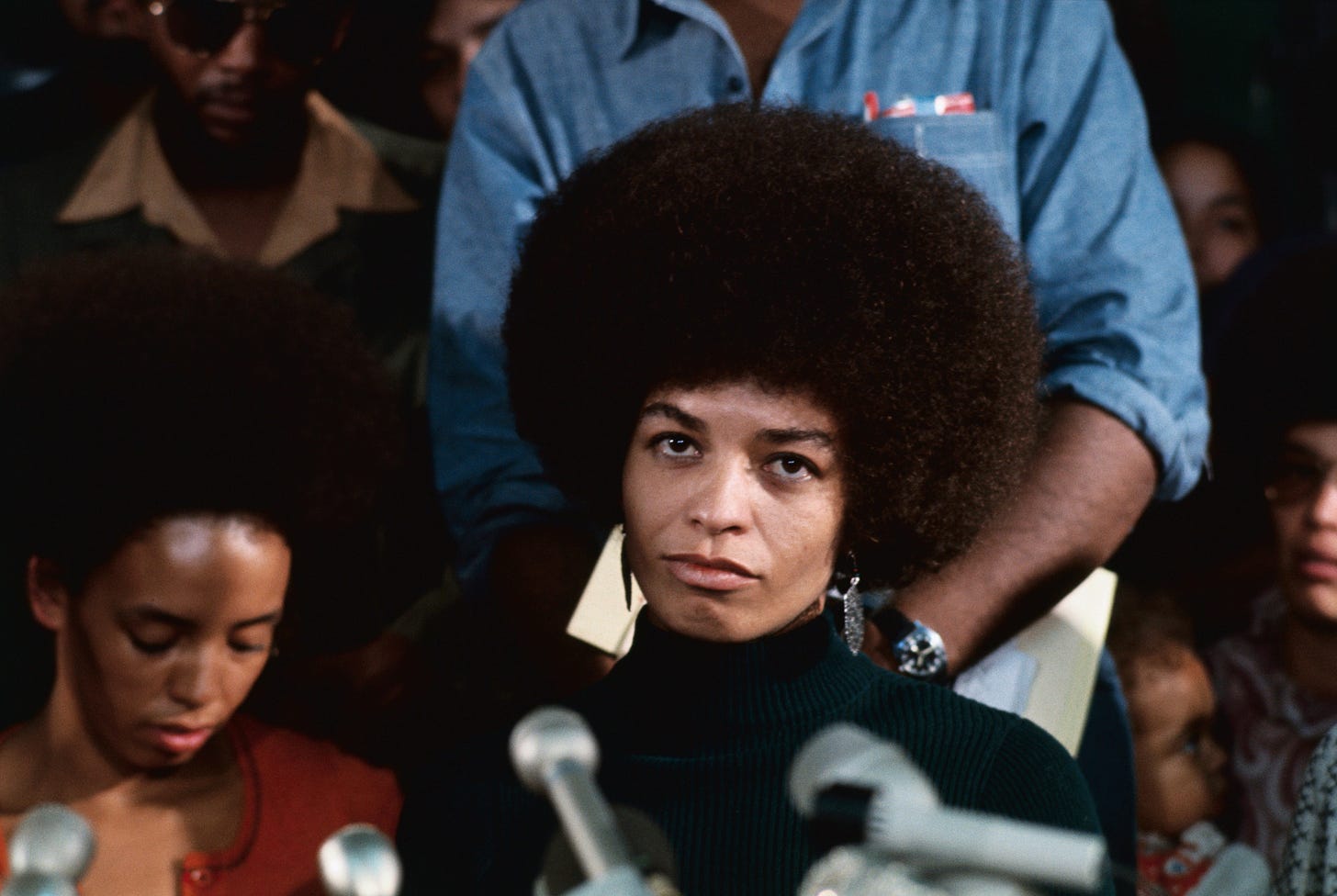Angela Davis
Angela Yvonne Davis is a prominent American activist, scholar, and author whose life and work have had a significant impact on the civil rights and social justice movements in the United States.
Born on January 26, 1944, in Birmingham, Alabama, her journey towards becoming an influential figure in the struggle for racial and social equality is marked by academic achievement, political activism, and enduring dedication to the causes she holds dear.
Early Life and Education (1944-1960s):
Angela Davis was born into a family deeply involved in the civil rights movement. Her father, Frank Davis, was a teacher and her mother, Sallye Bell Davis, was a civil rights activist. Growing up in Birmingham, Angela experienced firsthand the racial segregation and discrimination of the American South, which had a profound impact on her worldview.
She attended Carrie A. Tuggle School, a black elementary school, and later Parker Annex, a predominantly white school. Her experiences with racism and segregation fueled her desire for social change from a young age.
In 1961, Davis began her undergraduate studies at Brandeis University in Massachusetts, where she was exposed to critical intellectual ideas and political activism. She graduated magna cum laude in 1965 with a degree in French literature. She continued her education at the University of Frankfurt in Germany, where she studied under philosopher Herbert Marcuse, known for his Marxist and critical theory perspectives. This period greatly influenced her political thought.
Involvement in Civil Rights and Radical Activism (Late 1960s - Early 1970s):
Angela Davis returned to the United States in the late 1960s, and by then, she had become deeply involved in civil rights and radical politics. She joined the Communist Party USA (CPUSA) and became a prominent member of the Black Panther Party. Her involvement with these organizations put her at odds with the U.S. government and made her a target of surveillance and harassment by the FBI.
In 1970, she was accused of aiding and abetting the murder of a judge and three hostages during an armed courtroom incident in Marin County, California. Davis was arrested and subsequently put on trial in what became a high-profile case known as the "Angela Davis trial." She was eventually acquitted of all charges in 1972 after an international campaign for her release garnered significant attention and support.
Academic Career (1970s - Present):
Following her acquittal, Angela Davis continued her academic pursuits and became a professor of philosophy at the University of California, Los Angeles (UCLA). However, her tenure there was short-lived, as she was dismissed from her position due to her membership in the Communist Party and her political activism. This dismissal sparked a nationwide controversy over academic freedom.
Davis continued her academic career at various institutions, including San Francisco State University and Rutgers University. Throughout her career, she focused on issues of race, class, gender, and incarceration, publishing numerous influential books and articles, such as "Women, Race & Class" (1981) and "Are Prisons Obsolete?" (2003).
Continued Activism and Advocacy (1970s - Present):
Angela Davis has remained actively involved in various social justice movements over the years. She has been a vocal advocate for prison abolition and criminal justice reform, highlighting the disproportionate impact of incarceration on black communities. Her work has contributed to broader discussions about systemic racism and mass incarceration in the United States.
Davis has also been involved in anti-war movements, feminist activism, and global struggles for human rights. She has spoken and organized events on a wide range of issues, advocating for marginalized and oppressed communities both in the United States and around the world.
Legacy:
Angela Davis's legacy is multifaceted. She is celebrated as a civil rights icon, an academic trailblazer, and a tireless advocate for social justice. Her activism, scholarship, and unwavering commitment to challenging injustice continue to inspire generations of activists and scholars. Angela Davis's life and work remind us of the ongoing struggle for equality and the importance of fighting for a more just and equitable society.


